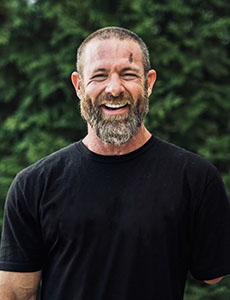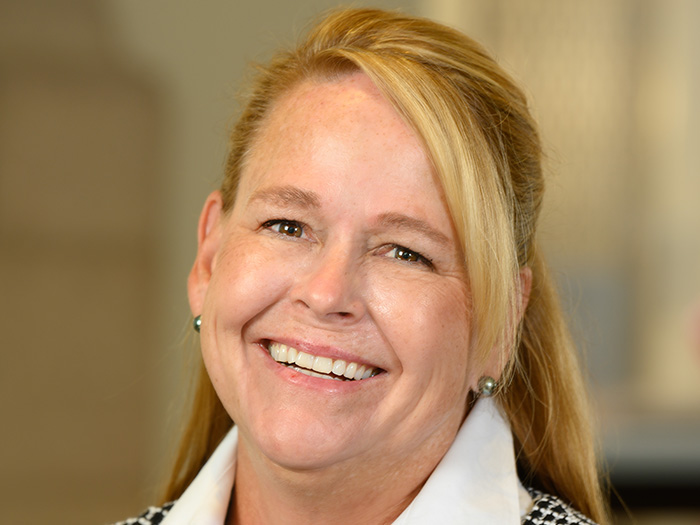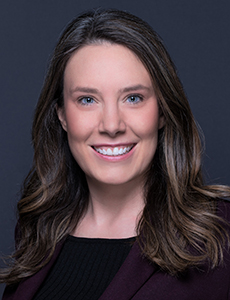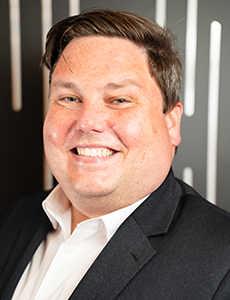Adding Compassion to Workers’ Compensation: A Combat Veteran’s Call for Change
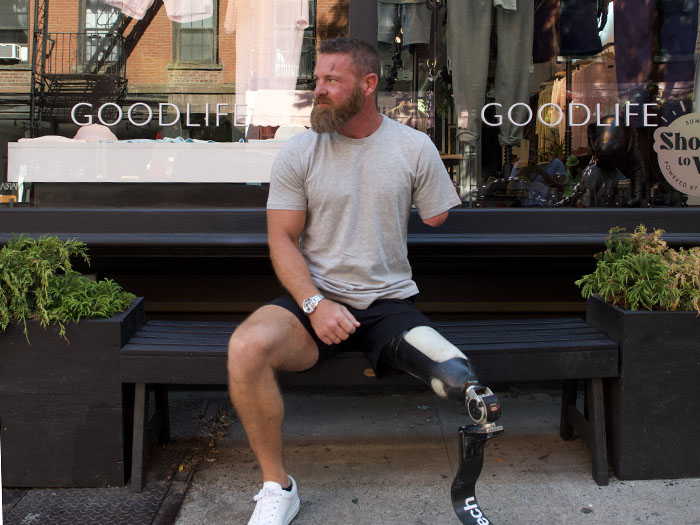
This Veteran’s Day, former U.S. Army sergeant, author, speaker and educator speaker Noah Galloway will deliver the keynote address at National Comp 2025 — a fitting tribute that underscores the powerful parallels between military service members and civilian workers navigating recovery after injury.
Galloway, who lost his left arm and leg in an IED explosion during his second deployment to Iraq in 2006, has become a leading voice in recovery and resilience. As an educator, speaker, and through his work with Optimized Outcome, engaging directly with patients, Galloway is working to bridge the gap between medical treatment and the emotional journey of healing — something he knows intimately.
In this conversation with National Comp chair Michelle Kerr, Galloway shares insights on the critical role of mental health, and why compassion should be central to workers’ compensation.
Michelle Kerr: What parallels do you see between service members coming back after an injury and civilian workers navigating their way back to work?
Noah Galloway: The parallels are there — they’re hand in hand the same, but unfortunately, they’re treated much differently. As an injured veteran, the day before I got injured, I had a vision for my career, for my future, for everything that involved me having all my limbs and being in the military. Then one day I wake up in the hospital and all that was over. I thought my life was over because the plan I had, everything was crushed.
To a lot of people, military or not, when you lose a vision of the future or a goal or a desire, you’re lost in a void of nothingness. And that’s where it really starts to hold people back from achieving what’s next in their life. There’s always a lot of talk of veteran suicide. Well, another group that has a high suicide rate are professional football players who have a successful career, never planned for anything after football, but that career comes to an end and they don’t know where they’re going to go.
The ones who are successful are those who have a strong community around them; family, friends, those supportive of moving forward and starting again — I love to refer to this as their new chapter in life. From birth till death, it’s one big book that we’re living, but there’s multiple chapters. You don’t want to live in one chapter, but sometimes it’s hard when you’re enjoying this chapter to start a new one. But it always leads to something better.
MK: Who was an unexpected champion in your recovery journey?
NG: When I got injured, I had every doctor who knew all the studies, all the facts, everything that they could come in my room and tell me exactly what I was going to experience in my recovery. I love facts. I’m a factual person. I like to know what’s what. But, I grew up with a father with one hand who did construction.
My father, who when he was a teenager, worked in a plant and a machine malfunctioned, squishing his left hand, and they ended up amputating it.
I was like any other teenager. I didn’t listen to my father when he talked. Whatever he said wasn’t important to me. But then when I got injured, suddenly there was a connection and his word was gospel because there was compassion. There was understanding. Not that a doctor couldn’t do the same thing, but I think what it really boiled down to was the understanding and having somebody sit with you, hear you and share things with you that are from experience. Sometimes it’s the compassion that’s necessary. The compassion and the care being seen is what makes the difference.
MK: For those who don’t have that personal connection to someone who’s been through similar trauma, where do they find that support?
NG: That is difficult. When I got injured in 2006/7, there were no books, magazines, nothing on the Internet that could tell you how to work with a missing arm and leg. I found a lot of videos on initial recovery, on how to get back into walking with a prosthetic leg, and things like that, plus physical therapy, but nothing that took it to the next level — moving forward with your life, not just healing, but emotionally moving forward.
That’s what partnering with Harvey [Warren] and Brian [Allen] with Optimized Outcome is power — we want to be that support, that community who helps encourage people to be there for them. Being someone that has been there, done that is power. That is what is going to motivate people to move forward. To say, “Hey, look, I’ve been where you are and I know what you’re going through. We’re going to be the new flock, birds of a feather, who are going to come in and help motivate people to move forward and start that next chapter.”
MK: What surprised you most about the non-medical aspects of recovery?
NG: When people ask me how long it took me to recover, I used to tell people about five years, but that’s not true. It probably took me about 15 years, because it wasn’t until the day came that I accepted the idea of taking care of my mental health. I was in denial for a long time in my recovery. The physical side is actually pretty easy — our body adapts. It really does.
But the big leap in success for my emotional wellbeing was when I took on mental health, and that’s a hard thing to address, especially a lot of us have come up in a world where that wasn’t always brought up or accepted. The number one way to do that is for people like you and me to be taking care of our own mental health. So when it comes up, we reference our own mental health. That makes people comfortable. No one likes the finger pointed at them, like “you need mental health help.”
The most surprising and the hardest was accepting it, then dealing with my own trauma. Both what happened to me, the physical injury, but then addressing how I ended up where I was in the first place, which for me, spanned back to childhood. Learning to address that is how we’re going to thrive.
MK: How do you help someone transition from having recovery happen to them to actively driving their own recovery?
NG: When someone is able to give you the tools to own that yourself, I think that’s the most powerful thing you can give somebody. There’s a unique way of doing that. You don’t want to just tell somebody, hey, this is on you. You have to do it. But we have to encourage people to realize they have the power to do it themselves. It always comes back to compassion, to encouraging people.
As a personal trainer, you want to encourage people to realize they can do these workouts on their own. So my job is to educate you on how it’s done, show you the ropes, and encourage you to do this, see the results, and then say, okay, now I want you to take this and make this even bigger on your own.
Once I realized I can do this on my own and create something more, that gave me my power back.
MK: What do you wish someone had told you early in your recovery?
NG: Painting the picture in a way that wasn’t negative. It shouldn’t be, “Oh man, you’re missing two limbs, what do you think you’re going to do now?” I should be more like, “Hey, so what do you want to do now with what you’ve experienced and learned?”
I’m so deep in mental health recovery now. I want to be that guy who motivates others to get to where I am, because I know the difference it’s made in my life. It’s my experiences that I appreciate and I want to build upon, and I wish someone would have explained that to me earlier, how powerful that can be.
MK: What would you say to men who struggle with the stigma around seeking mental health support?
NG: No offense to the generations before us that passed this down, but they weren’t aware. They didn’t know. They were doing the best they could do with the information they had.
Now, we are much smarter. Each generation is given tools that the generation before them didn’t have, and it’s up to us to use those tools.
The most complicated organ in our body is the brain. And the brain controls it all. At some point I realized most of the negativity we experience in life is created in our minds … and once we move past that, we feel better as people.
There were several generations before us who believed you had to pull yourself up by your bootstraps, that men shouldn’t show emotion, that you should be tough and stern. Well, that created a generation behind them that has dealt with generational trauma. If you suppress one emotion, you’re suppressing all the emotions. And when it does come up, because it will, a lot of times it comes out as uncontrollable anger or sadness and depression.
MK: What’s at the heart of your message for the National Comp audience?
NG: You know, we’re talking about workers’ compensation, but it’s a shame there’s not an added word in there — workers’ compensation and compassion. I think that is what’s going to be the driving force in seeing big movements: Adding that component of compassion, compassion, compassion, compassion. &

